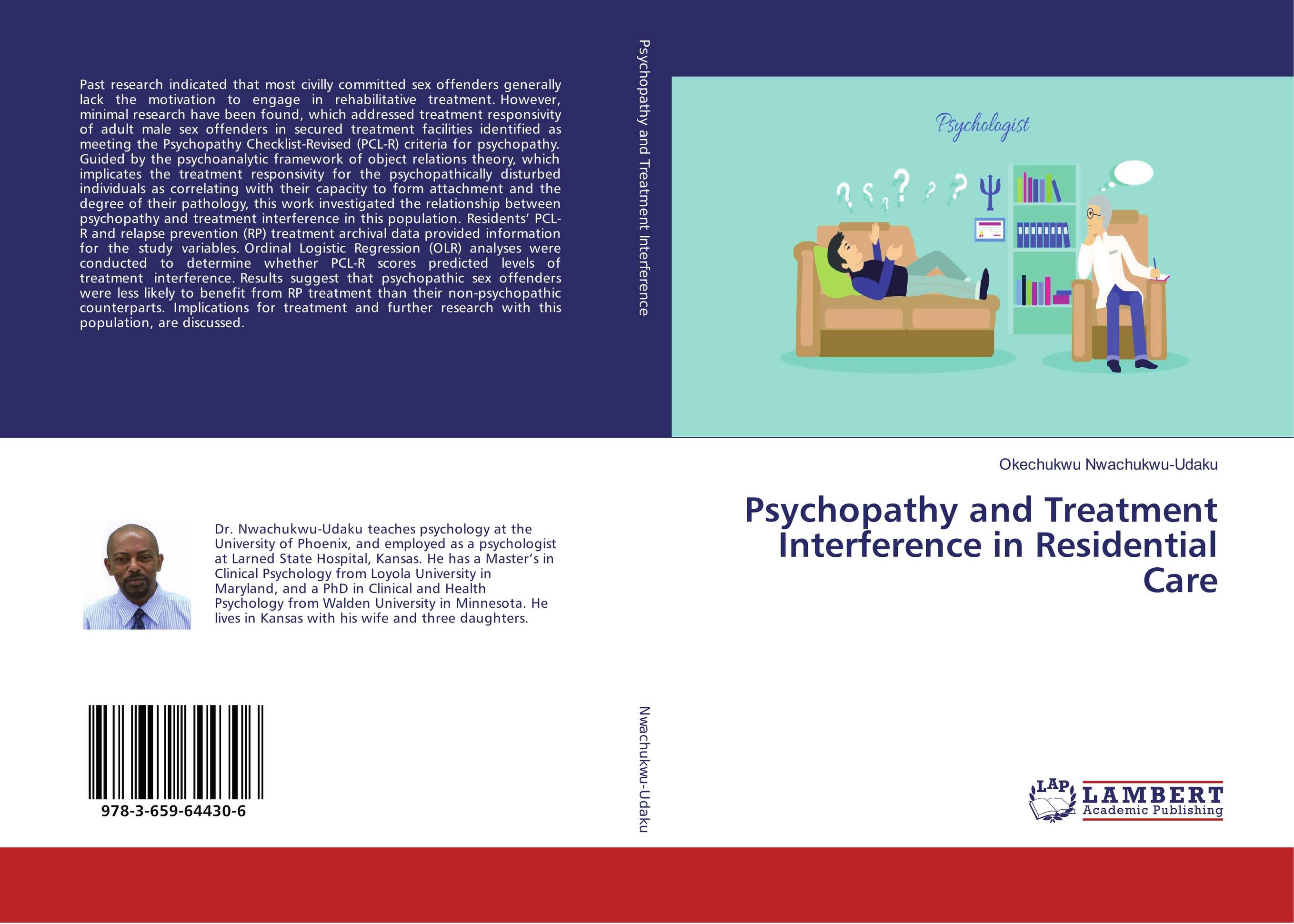| Поиск по каталогу |
|
(строгое соответствие)
|
- Профессиональная
- Научно-популярная
- Художественная
- Публицистика
- Детская
- Искусство
- Хобби, семья, дом
- Спорт
- Путеводители
- Блокноты, тетради, открытки
Psychopathy and Treatment Interference in Residential Care.

В наличии
| Местонахождение: Алматы | Состояние экземпляра: новый |

Бумажная
версия
версия
Автор: Okechukwu Nwachukwu-Udaku
ISBN: 9783659644306
Год издания: 2016
Формат книги: 60×90/16 (145×215 мм)
Количество страниц: 200
Издательство: LAP LAMBERT Academic Publishing
Цена: 43670 тг
Положить в корзину
| Способы доставки в город Алматы * комплектация (срок до отгрузки) не более 2 рабочих дней |
| Самовывоз из города Алматы (пункты самовывоза партнёра CDEK) |
| Курьерская доставка CDEK из города Москва |
| Доставка Почтой России из города Москва |
Аннотация: Past research indicated that most civilly committed sex offenders generally lack the motivation to engage in rehabilitative treatment. However, minimal research have been found, which addressed treatment responsivity of adult male sex offenders in secured treatment facilities identified as meeting the Psychopathy Checklist-Revised (PCL-R) criteria for psychopathy. Guided by the psychoanalytic framework of object relations theory, which implicates the treatment responsivity for the psychopathically disturbed individuals as correlating with their capacity to form attachment and the degree of their pathology, this work investigated the relationship between psychopathy and treatment interference in this population. Residents’ PCL-R and relapse prevention (RP) treatment archival data provided information for the study variables. Ordinal Logistic Regression (OLR) analyses were conducted to determine whether PCL-R scores predicted levels of treatment interference. Results suggest that psychopathic sex offenders were less likely to benefit from RP treatment than their non-psychopathic counterparts. Implications for treatment and further research with this population, are discussed.
Ключевые слова: Psychopathy, sex offender, Treatment Progress, Treatment Interference, Group Attendance, Behavioral Challenges, Interpersonal/Affective style, Social Deviance style



